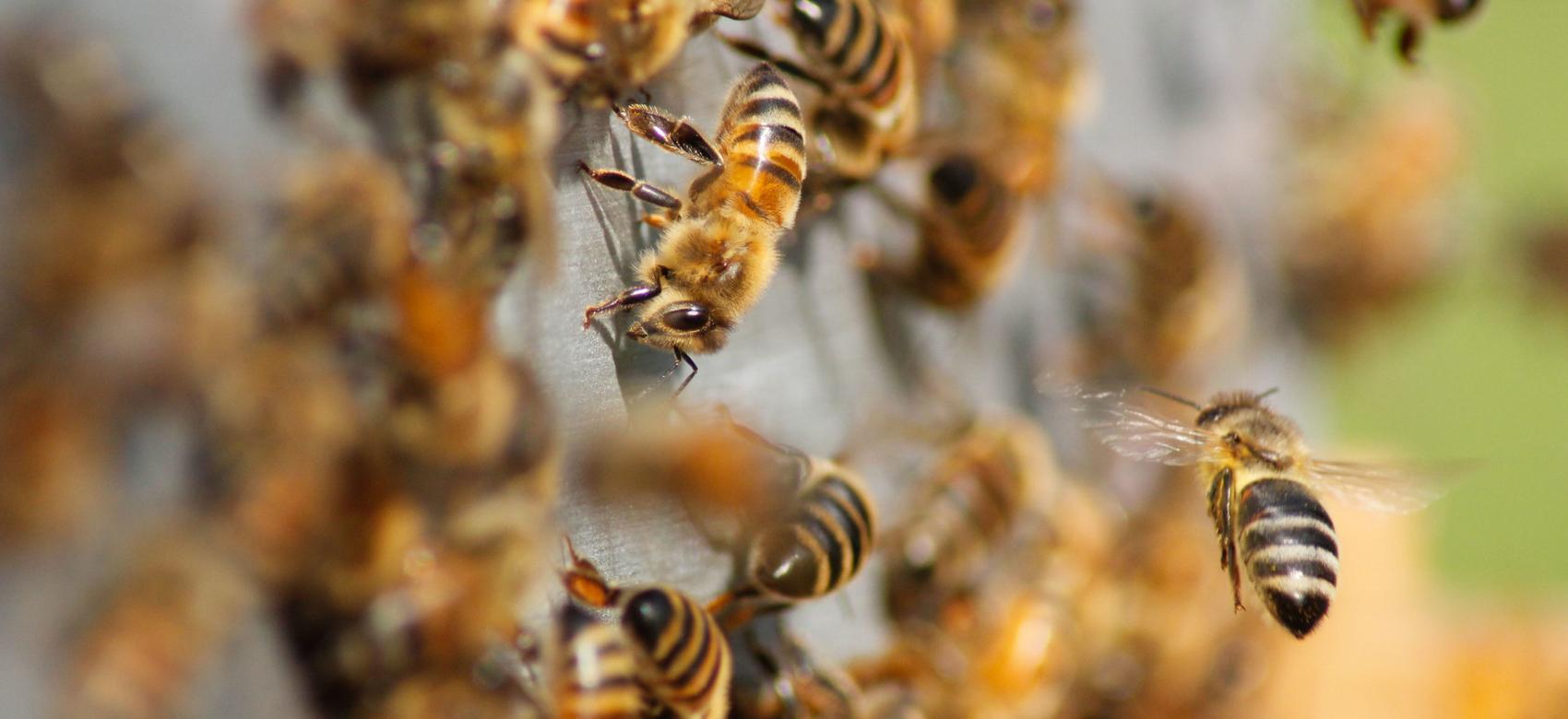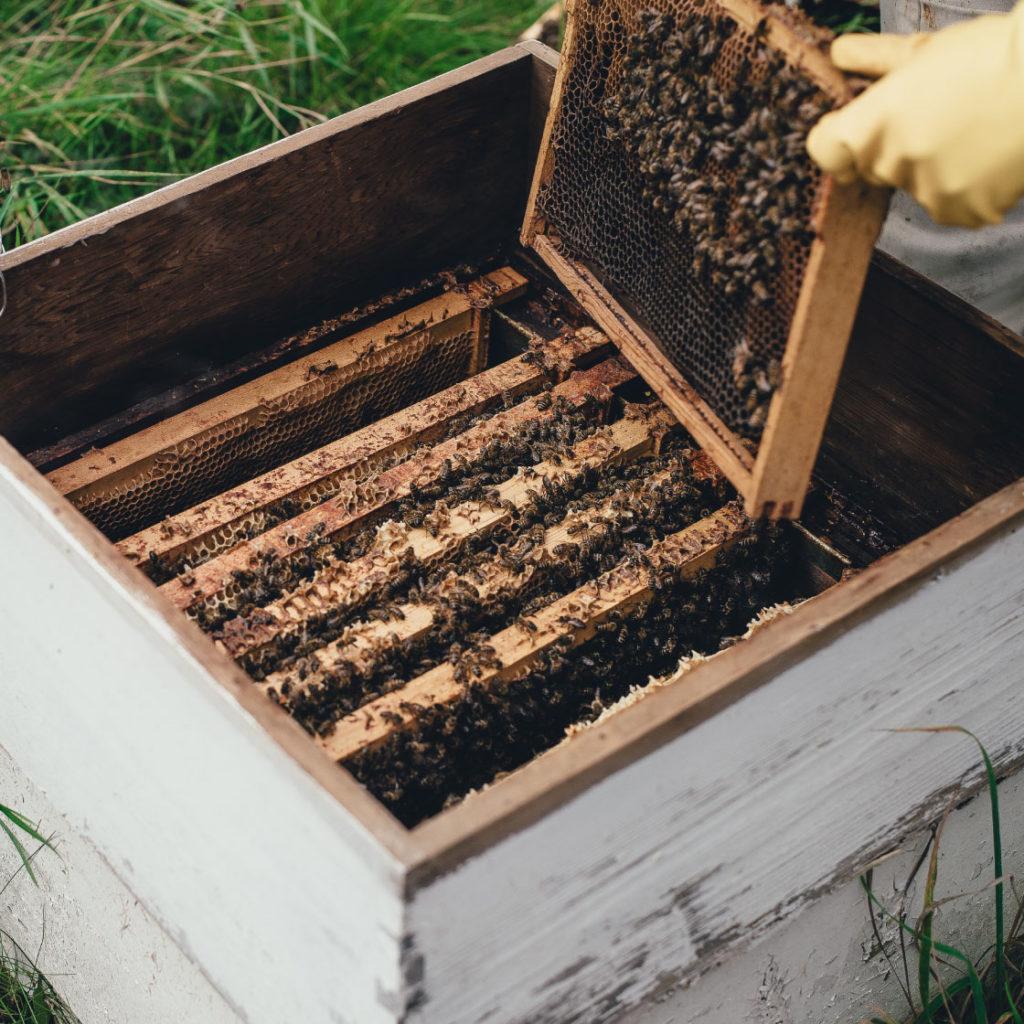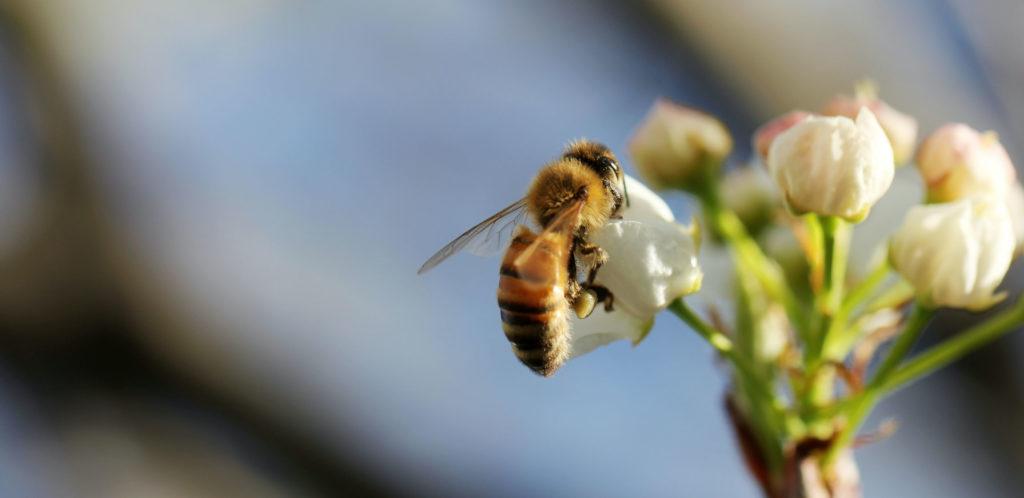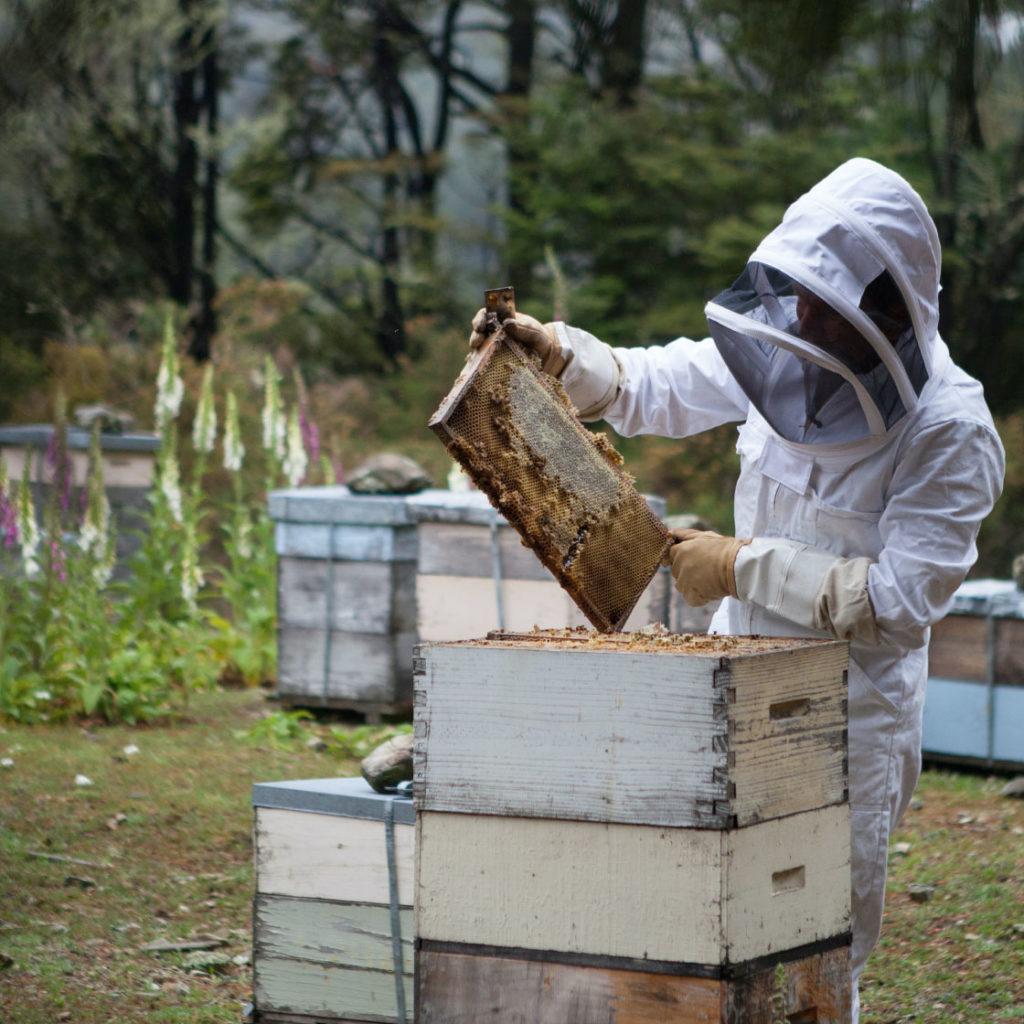Saving the humble honeybee
Can selective breeding help declining honeybee populations?

About a decade ago, honeybee colonies started to die off with enough frequency to be noticeable. Then, they began to collapse in alarming numbers all around the world, particularly in North America. Beekeepers have reported losing about a third of their honeybee hives and colonies every year — about three times the historical average.
The planet needs bees. Honeybees are responsible for pollinating vast tracts of orchards and farmland, assisting us in the pursuit of feeding our planet. Blueberries, almonds, cranberries, apples, cherries — honeybees pollinate all these and more. In Canada alone, the economic harvest value attributed to honeybee pollination is estimated to be up to $5.5 billion per year. Without the bees to do all that hard work, our agro-ecosystems are at risk.
The causes behind this decline are complex. Habitat loss and climate change have played a role, as have diseases, pests and pathogens. One particular worrying trend is that years of chemical pesticide use have led to pathogen resistance — and the bugs are catching up with the bees.
Yet some bees are more resistant to disease than others, and this resilience may hold the key to bee survival.
Dr. Leonard Foster, professor in the Department of Biochemistry and Molecular Biology in the Faculty of Medicine, and a team of scientists at UBC are working to reverse declining honeybee numbers by selectively breeding queen bees who possess genetic traits that make them more resistant to disease. It’s the same approach that farmers have used for millennia: find the organisms that exhibit the traits you want, and breed for them.
“We’re using modern molecular tools to do the same thing that people have done with their crops and farm animals for generations.”
Dr. Leonard Foster, UBC Faculty of Medicine
“We’re not genetically modifying bees. We’re using modern molecular tools to do the same thing that people have done with their crops and farm animals for generations: namely, selectively breeding for the traits that are valuable to us as humans, only we’re doing it faster and more efficiently,” says Foster.
Foster and his team want to breed more of the bees that show a natural predisposition to hygienic behaviours within their colony. Think of them as housekeeper bees: the ones who tidy and remove the dead and dying. “Get those sickened bees and their ailments out of the colony,” says Foster, “and you’re empowering the colony to survive those diseases more effectively.”
This is integrated pest management (IPM) at its best. Foster is working with beekeepers, economists and biologists across North America and Europe to design and implement the IPM practices that will help to eradicate the diseases plaguing honeybees. His team’s work is helping guide beekeepers in dealing with the challenges facing the honeybee industry.
Success with this project means fewer colony deaths, more honey in the hives and more bees to keep doing the work.
Ways you can help honeybees
The following suggestions from the Faculty of Land and Food Systems at UBC can help honeybee populations stabilize and grow.
- Buy local honey, preferably directly from beekeepers. This helps to support the local industry, which is by far the best way to ensure stable bee populations.
- Plant bee-friendly flowering plants like sunflowers, blue flax, purple cornflower and California poppies.
- Leave bare spots in your garden for wild bees to dig and nest in.
- During a hot, dry summer, fill up a bucket with water. Float some sticks, grass or wood chips in it for the bees to land on.
- Avoid insecticides of all kinds.
Originally published Spring 2016
Dr. Leonard Foster and the BeeHIVE Research Cluster at UBC are finding ways to improve the health of honeybees.
Learn more about BeeHIVE’s research
Feel free to republish the text of this article, but please follow our guidelines for attribution and seek any necessary permissions before doing so. Please note that images are not included in this blanket licence.






